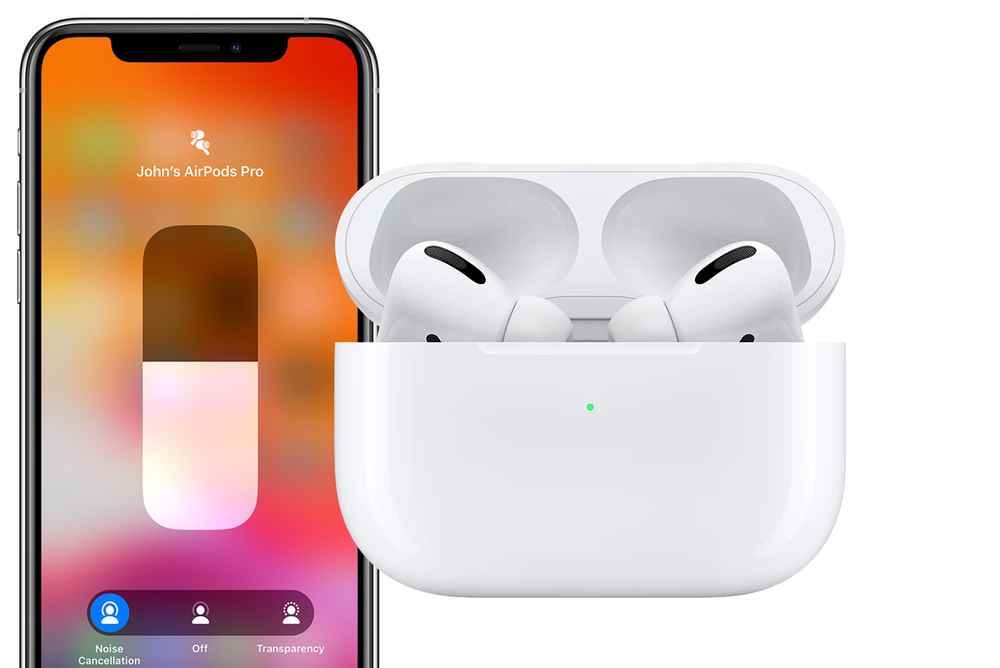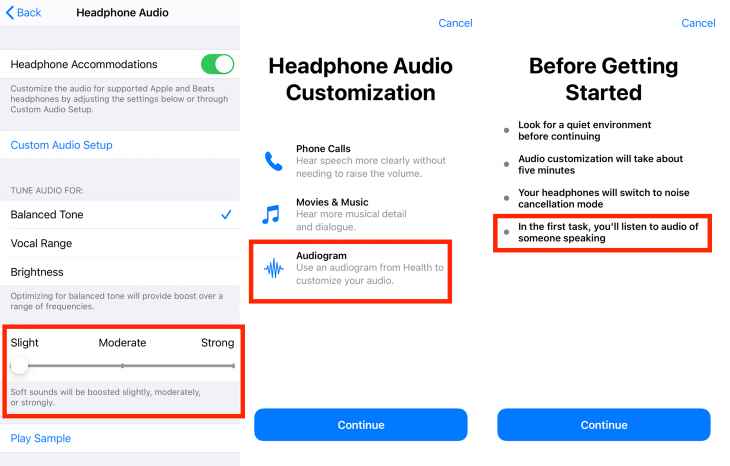Our friends at Hearing Tracker broke a story a few days ago on the introduction of new accessibility features to be introduced by Apple. In the article "Breaking: AirPods Pro Become Hearing Aids in iOS 14", Abram Bailey spoke about the new features and mused that "AirPods can now essentially be used to provide typical hearing aid functionality; applying personalized amplification to make it easier to hear those around you." I think that the introduction of a personalised sound by Apple is a fantastic part of their accessibility programme, I also think that it represents the beginning of a wider movement within the audio technology world to ensure that people with hearing loss can enjoy audio that is customised for them. It also represents a possible new situational solution for people with mild and perhaps even moderate hearing loss. Let's take a look at those thoughts.

The new feature amplifies soft sounds and tunes audio to make it sound better for the user. Apple also said, “Headphone Accommodations also supports Transparency mode on AirPods Pro, making quiet voices more audible and tuning the sounds of your environment to your hearing needs.” Abram covered the feature itself very well and if you want a deeper look at it, head over to his article. In essence, the new feature which is in the accessibility settings of IOS 14 guides the user through a series of listening tests which should enable clearer speech for phone calls, media, and real-world conversations (AirPods Pro only). The feature can also use an audiogram that has been entered into Apple Health to customise the audio output which you can see below. It will be very interesting to see just how customised the audio settings are when an audiogram is used.

What you are left with is a headphone that's more than a headphone and a hearing aid that isn't quite a hearing aid. Considering that the average battery life of Airpods Pro is four hours, I don't think hearing aid users will be throwing their hearing aids away any time soon. Having said that, this feature is an outstanding move forward by Apple to increase audio accessibility for people with hearing loss. It also signals a wider movement by big tech in the audio field to ensure people with hearing loss are catered to better for their needs.
Over the last year, I have watched with interest the increasing debate about audio customisation for people with hearing loss and why companies like Spotify and Audible need to begin to take notice. People with hearing loss like music, they also like to listen to audiobooks, but the big players in that field don't accommodate them very well. This move by Apple will make those platforms sound better on Apple devices with IOS 14 installed.
With this move by Apple, you can expect something similar by Alphabet, the Google company behind the Android operating system. I think within a few years we will see features like this break out into other consumer audio devices and audio focused platforms and apps.
Not Quite a Threat to Hearing Aids
For now, this new system isn't quite a threat to hearing aids, however, it may well help to meet the needs of consumers who have situational problems. For instance, for consumers who have mild or moderate hearing loss that really shows its effects in noisy environments. Using this feature with a set of Airpods Pro may well help them to hear better in those environments just like the IQ Buds from NuHeara do now.
Combined with an app like the Chatable App that we discussed a couple of articles ago, I can imagine it would definitely meet the needs of occasional, situational users very well. In finishing, good job Apple, not a threat to hearing aids right now, but a very interesting beginning to a future for people with hearing loss that just looks more interesting every day.
Like us on Facebook by clicking the button below to keep up with our latest utterances. Alternatively, if you don't like Facebook, sign up to the newsletter below. It is important to remember, a hearing aid isn't properly fitted unless they do Real Ear Measurement.










